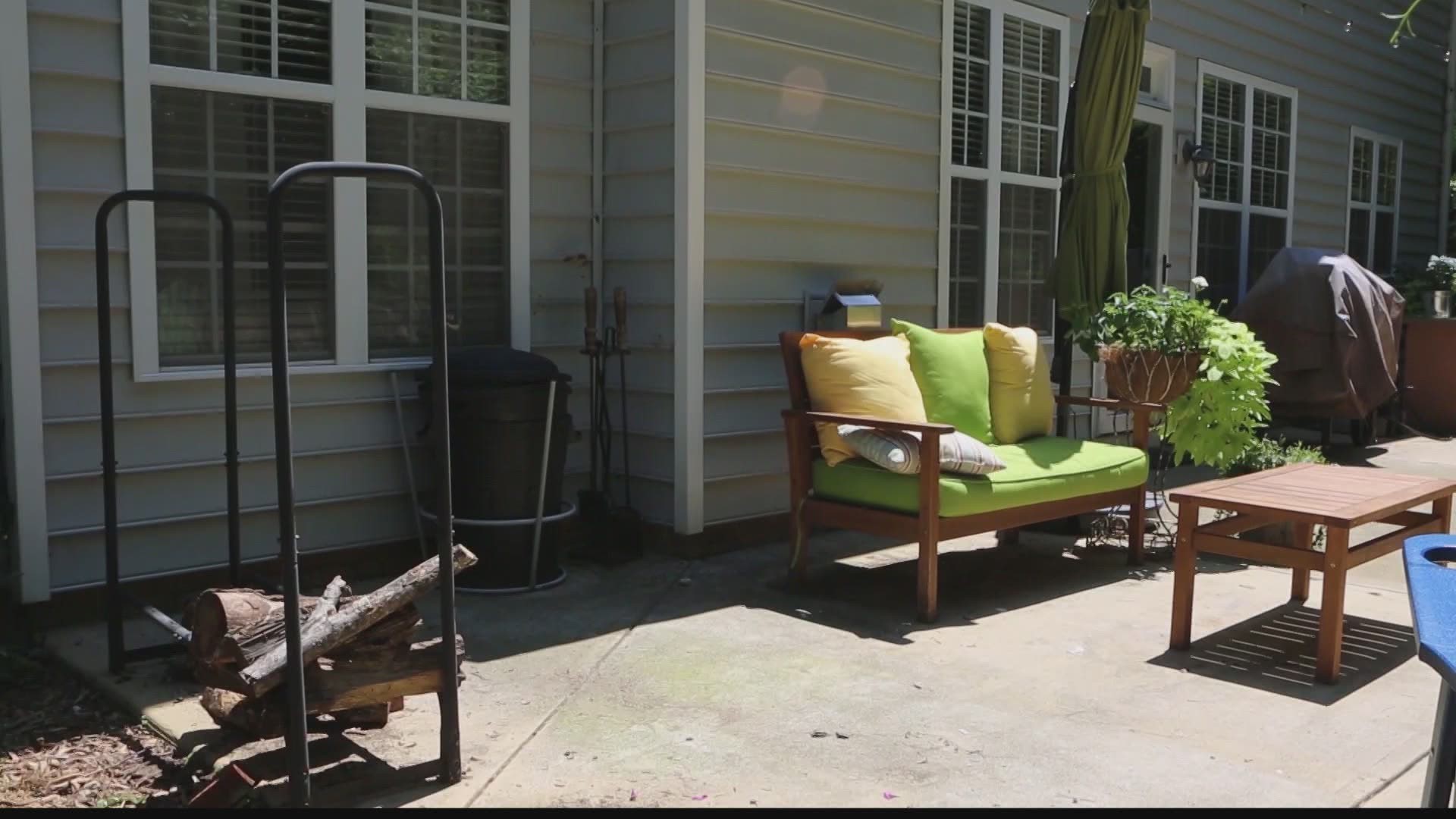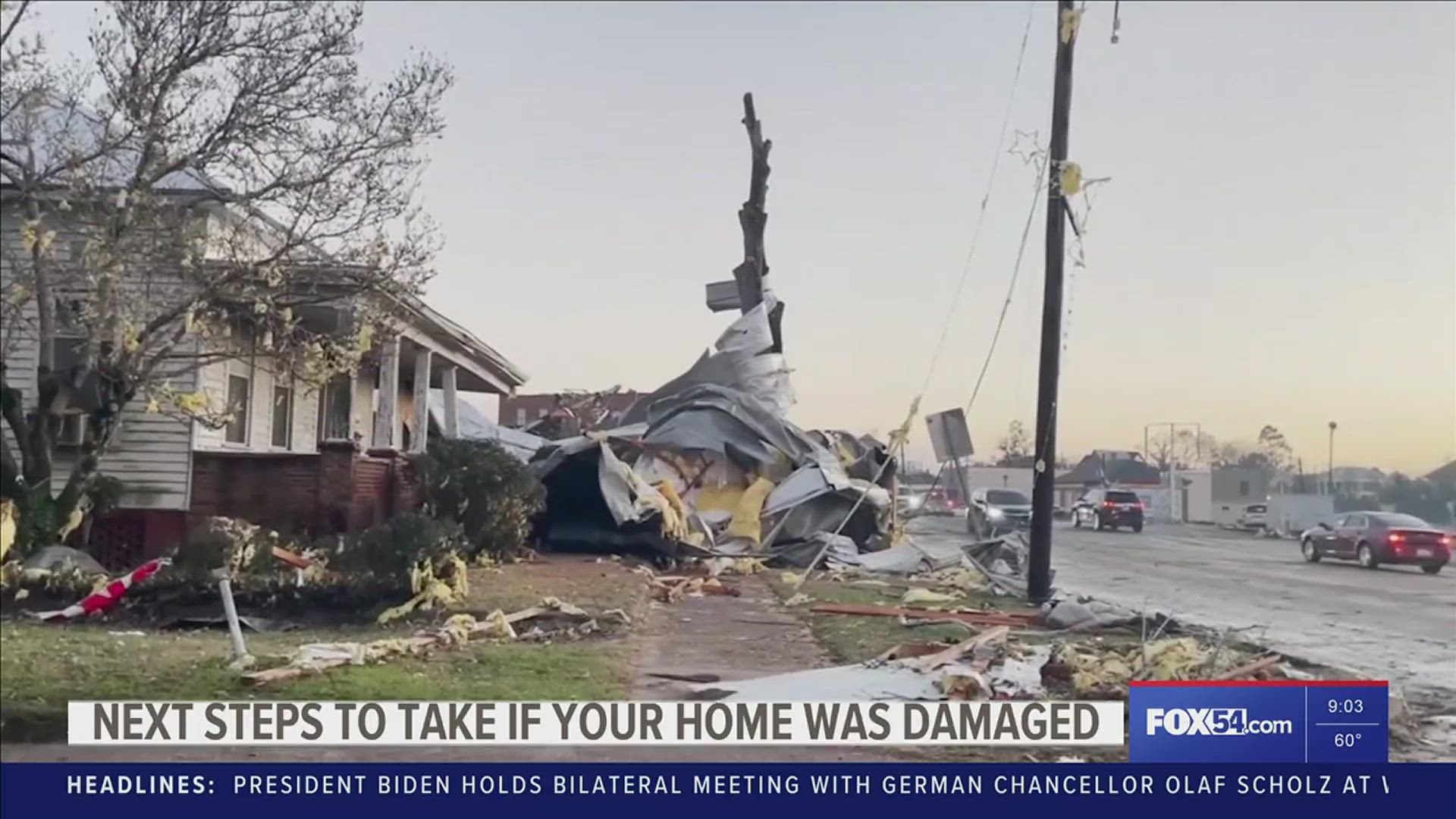HUNTSVILLE, Ala. — When it comes to preparing for severe weather, there are many things to protect: your family, your pets, yourself.
It's also important to keep in mind that your house needs protection too.
Preventing damage to your home in times of severe weather may seem out of reach, and like it's in Mother Nature's hands, but there are some things you can do to try and avoid any possible damage.
"Bring inside any of those loose items that are outside or tuck them real close to your house that could become flying debris, that's step number one. So, basically, take a walk around your house and look for some of those loose items and see what you can move and bring inside," said Dr. Ian Giammanco, lead research meteorologist with the Insurance Institute for Business & Home Safety.
If possible, bring in items such as heavy flower pots or lawn furniture that could break windows. There's also a way to protect the inside of your home from flying debris.
"Make sure before you leave to close all your interior doors, that can actually help you and your home basically withstand winds if you happen to have some debris hit a window and puncture it and air gets inside. It can actually help reduce the force of that air that acts on your roof. So shut those interior doors, make sure your garage door is completely closed, all those openings, so air and wind can't get inside your house," said Giammanco.
Then there's protecting your vehicle.
"A good option too with hail also as a threat, if you've got a garage, make sure you can get your car in there. A lot of us, just like me like to store things in our garage but see if you can clean it out and get your car under cover," said Giammanco.
We've covered steps to protect your home. So, how can your home return the favor?
"Find that interior room whether it's a closet or a bathroom, basically the center of your home, lowest floor, and put as many walls between you and the outside as possible. So think about this, a 2x4 can go through an exterior wall even if it's got brick veneer on the outside but chances are, it's gonna take a lot more to get through multiple walls to where you are," said Giammanco.
With this severe weather making its way to the valley, the possibility of your home being damaged increases. There are some things you should do before and after to protect you and your home if it's damaged in this weather.
"The word of the day if you think about your insurance policy is document, document, document," said Giammanco.
It's important to document the state of your home before any possible damage occurs.
"Go around your house with your cell phone and take pictures of all your valuable items, your appliances, your televisions, all the things of value that you wanna make sure you've documented, make sure you've got the geotagging, all the timestamp stuff going on your cell phone and that can make the claims process, if something happens to your home, much smoother," said Giammanco.
If your home does get damaged, there is something you need to do immediately and something you need to look out for.
"The first person you should call if you think you have damage is your insurance agent. Make sure you have their phone numbers stored in your cell phone and call them immediately and be very wary of contractors that show up, within you know, 12, 18 hours of a storm, they may not have great documentation. We just don't want people to get taken advantage of and we see that from time to time after these big severe weather events," said Giammanco.
Let's say you've suffered damage, what can you do to avoid being scammed by someone when getting your house repaired?
"When you're out there looking for a potential contractor to help repair your home, look for somebody in your local community. Chances are they're reputable, everyone knows them, you're gonna avoid that potential for that kind of fly-by-night fraud scenarios that we actually see from time to time. And also make sure that they are essentially licensed and bonded and have their own insurance, that's a good indicator that they're a reputable company," said Giammanco.
From the BBB:
Natural disasters like storms, tornadoes, hurricanes, flooding, and wildfires often bring out the best in people, as strangers reach out to help others in need. Unfortunately, the aftermath of a crisis also brings out contractors taking advantage of those who have already been victimized. Better Business Bureau is warning homeowners affected by natural disasters to beware of “storm chasers” and out-of-town contractors soliciting business. Although not all storm chasers are scammers, they may lack the proper licensing for your area, offer quick fixes, or make big promises they can’t deliver.
There are some things you should do when hiring any contractor (such as getting three estimates, getting everything in writing, and paying with a credit card). Click here for BBB tips on hiring a contractor.
For victims evacuated to a shelter, know what to expect during the COVID-19 pandemic.
BBB also has these specific tips for victims of natural disasters:
Contact your insurance company. Ask about your policy coverage and specific filing requirements. Save all receipts, including those for food, temporary lodging, or other expenses that may be covered under your policy. Your insurance company may also have recommended contractors.
Do your research. Find businesses you can trust on BBB.org. Check your state or provincial government agency responsible for registering and/or licensing contractors. Get references from friends and relatives.
Resist high-pressure sales. Some storm chasers use tactics such as the “good deal” you’ll get only if you hire the contractor on the spot. Be pro-active in selecting a contractor and not re-active to sales calls on the phone or door-to-door pitches. Disaster victims should never feel forced to make a hasty decision or to choose an unknown contractor.
Be especially careful of door-to-door contractors. Many municipalities require a solicitation permit if sales people go door-to-door. Ask for identification. Check their vehicle for a business name, phone number, and license plates for your state or province.
Don’t sign over insurance checks to contractors. Get an invoice from the contractor and pay them directly (preferably with a credit card, which offers additional fraud protection over other forms of payment). Don’t sign any documents that give the contractor any rights to your insurance claims. If you have questions, contact your insurance company or agent.
Be wary regarding places you can’t see. While most contractors abide by the law, be careful allowing someone you do not know to inspect your roof and other areas of your house. An unethical contractor may actually create damage to get work. The same goes for attics, crawl spaces, ducts, and other places you cannot easily access or see for yourself.
BBB is also warning contractors to beware of storm chasers who offer to pay local construction companies substantial amounts of money to use the business’s established name, reputation, and phone. They masquerade as a local business, collect the insurance money and then move on, leaving the real business to deal with unsatisfied customers due to bad workmanship, unfinished work, or unfulfilled warranties.


